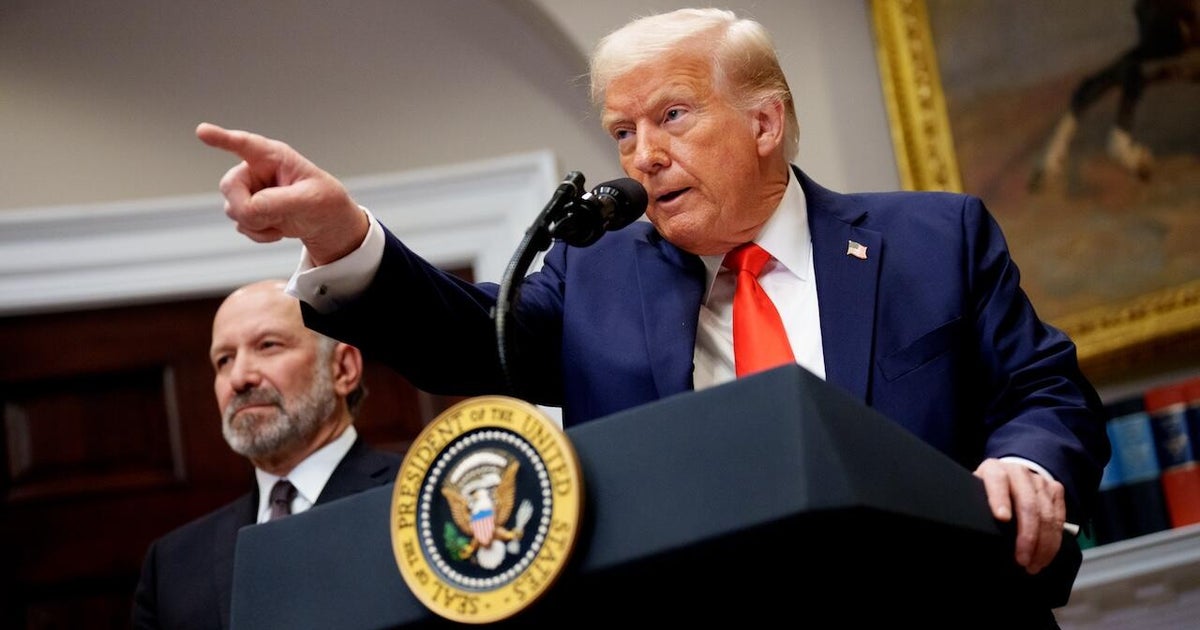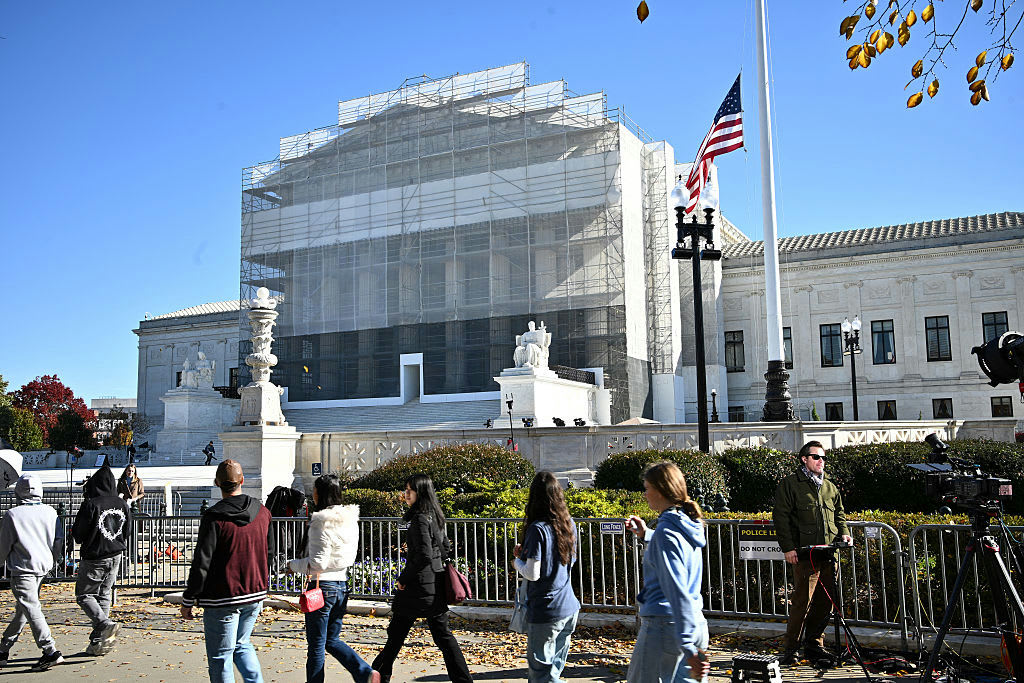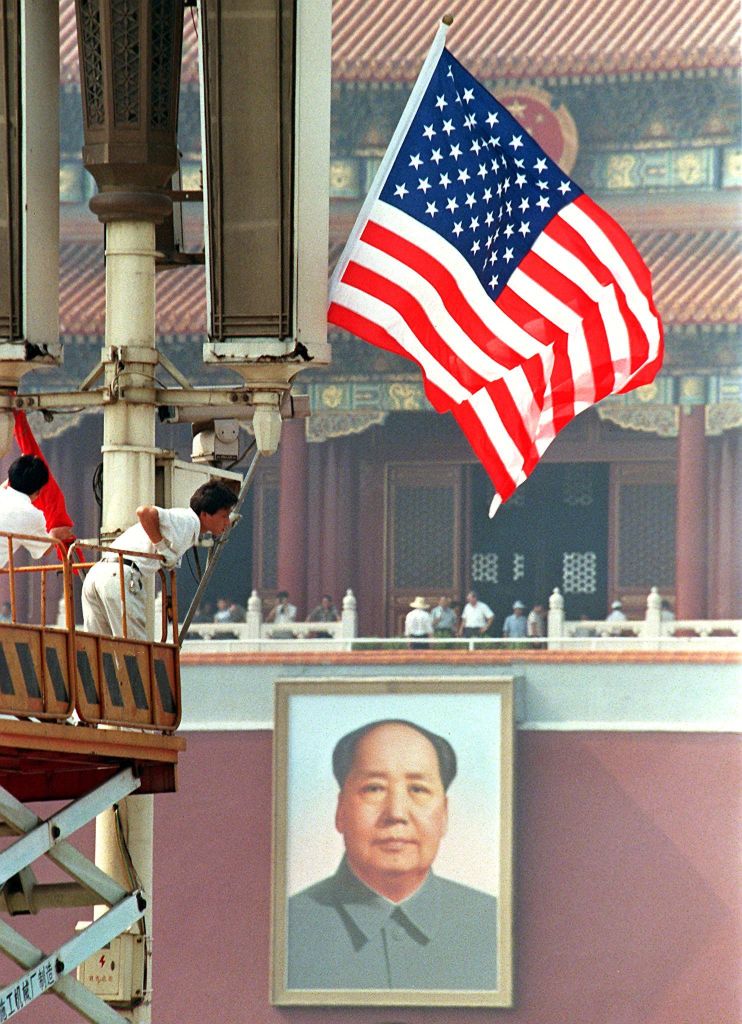U.S. readies secret weapon in trade fight with China
Fears of a U.S. trade war with China have focused on the threat of $150 billion in tariffs, risk to American industries like farming and potentially higher prices on a wide range of products.
But with U.S. and Chinese officials concluding trade talks in Beijing in early May without a major breakthrough, a broader effort with bipartisan support is gaining steam in Congress that could have a far bigger impact on relations — and on the American economy. The push involves increasing the authority of a government panel, little known to the public, that oversees foreign acquisitions of American companies.
Legislation in both the House and Senate seeks to stem China's access to U.S. intellectual property gained by acquiring and investing in domestic companies. Proponents of the measures say limiting Chinese control over U.S. players, especially in key sectors like technology and telecommunications, is a matter of national security.
"There is now strong support among both parties for curbing Chinese investment in the U.S., and for slowing or reversing the pace of technological integration between the two countries," Arthur Kroeber, head of research for Gavekal Research, said in a research note, adding that "the battle over investment has only just begun."
At the same time, President Trump has asked the Treasury Department to offer recommendations on tariffs by May 21, and that report may also include ways to limit foreign investment in the U.S. Combined, the initiatives represent the most aggressive government effort in decades to blunt the influence of a foreign power: China.
"Serious concerns"
In one stark example of unconventional steps the U.S. can take to target Chinese businesses, the Commerce Department in April imposed a seven-year sales ban on Beijing-based ZTE after finding that it had violated sanctions on doing business with Iran and North Korea. The telecom said Thursday that it has halted its main operations because of the move, which cut off access to key components, like microchips, made in the U.S.
Yet the bills wending their way through Congress -- both called the Foreign Investment Risk Review Modernization Act of 2017, or FIRRMA -- could give the government far more firepower to disrupt foreign businesses seeing to operate in the U.S. The measures aim to strengthen the Committee on Foreign Investment in the United States, or CFIUS, a panel created by President Gerald Ford in 1975.
CFIUS, which includes representatives from the departments of Treasury, Defense, State, Commerce, Energy and Homeland Security, reviews individual acquisitions by foreign entities in the U.S.. And historically, the panel has blocked relatively few such purchases. That reticence is consistent with the long-held view of most American political leaders and economic officials that free trade, including investment from around the globe, makes for a more dynamic economy.
The legislation aims to better protect U.S. intellectual property in artificial intelligence, robotics and other domains by giving CFIUS broader authority to block foreign acquisitions.
The House Financial Services Committee this week postponed a vote on FIRRMA amid concern from businesses about differences between the Treasury and Defense departments on the legislation, Politico reported on Friday.
"The acquisition of a Silicon Valley startup or even a health care provider may raise just as serious concerns from a national security perspective as the acquisition of some defense or aerospace companies, CFIUS's traditional area of focus," Heath Tarbert, an assistant secretary of the Treasury, said in April in written testimony before a House subcommittee.
CFIUS has already stepped up restrictions on foreign-based transactions, most notably recommending in March that Mr. Trump block a proposed $117 billion deal by Singapore's Broadcom for U.S. telecom parts manufacturer Qualcomm.
China is often accused, including by Mr. Trump, of swiping inventions covered by U.S. patents, trademarks and copyrights for everything from aviation equipment to software as it turbocharges its economy. Yet it's status as the world's second-biggest economy makes it an obvious market for U.S.corporations.
"It's tricky business," said Matt Gold, an adjunct professor of law at Fordham University and a former deputy assistant U.S. trade representative for North America. "You can't stop all American capital from creating jobs overseas. And you don't want to stop all foreign capital from creating jobs here."
Jobs from Chinese money
Indeed, experts fear that tightening the spigot on Chinese investment could deprive American companies of an ample source of capital — funding needed to drive growth and employment.
Some 2.6 million U.S. jobs rely on the U.S.-China trade relationship, according to Oxford Economics, with at least 43,000 tied to direct Chinese investment. At their peak in 2016, Chinese companies spent $62.8 billion on buying U.S. firms, a roughly 100-fold rise from 2000, according to Dealogic.
Between 2000 and 2017, more than 1,500 deals have involved Chinese companies investing in the U.S., according to Rhodium Group. Chinese companies have made direct acquisitions in most U.S. states.
The U.S. companies in which Chinese firms hold large stakes run the gamut. They include technology giants such as IBM and Tesla; automaker General Motors; agriculture giant Smithfield Foods; and fast-growing startups such as Uber, Lyft, Snap, Grindr and Airbnb.
That tide of funding may soon slow to a trickle. With Treasury set to outline a plan to curb outside investment, the Senate bill has been fast-tracked. Analysts speculate it could reach the floor by August.





